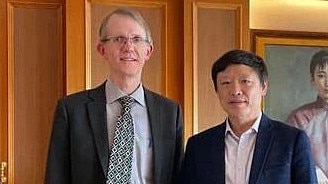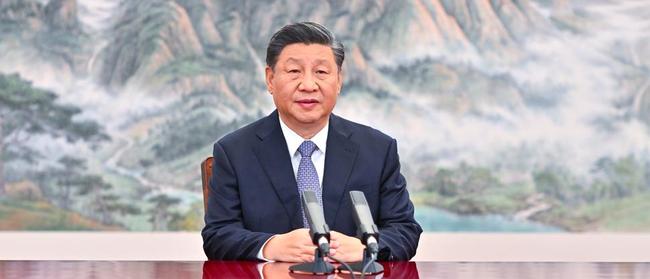Serving at Xi Jinping’s pleasure — or not
Why did Xi Jinping suddenly retire his most influential propagandist?

Everyone in China serves at the pleasure of Xi Jinping.
So when the Chinese Communist Party’s most influential propagandist, Hu Xijin, 61, suddenly “retired” this week, attention turned to what he had done to displease the great leader.
Much of Comrade Hu’s final day as the editor-in-chief of the Global Times, the party’s pugnacious mouthpiece, was normal enough.
He threatened Taiwan with war, as he did throughout the 16 years he ran China’s most widely read media outlet.
“Once the Chinese mainland engages in war to liberate the island of Taiwan and the People’s Liberation Army (PLA) launches a full reunification-by-force operation, then, I believe, it will be resolved in a matter of hours,” he wrote, at the beginning of his last column as the masthead’s boss.
That was routine enough, but then he got grisly – even by his standards.
“Whoever continues to resist will be wiped out … the top figures of the secessionist [Democratic People’s Party] authority will either surrender or be ‘beheaded’ immediately.”
David Bandurski, the director of the China Media Project, a research group that closely follows party-controlled media, noted that reports on Hu’s retirement said Beijing was keen to “strengthen [the paper’s] political guidance”.
“This language seemed to suggest there might be concerns at the top about Hu, or the Global Times, as loose cannons firing against the discipline coming from above,” Bandurski said.
Perhaps threatening to chop off the heads of senior members of Taiwan’s elected government was too much for Xi. Or perhaps Xi worried about being boxed in by Hu’s bellicosity, which jars with Beijing’s supposed preference for a “peaceful reunification” with self-governed democratic Taiwan.
“I would not be surprised if some of his more extreme war-mongering over Taiwan did not go over well at the top,” said Bill Bishop, author of the influential Sinocism newsletter.
Hu’s prominence likely added to the problem.

His over-size role in Beijing’s party-controlled media environment was well documented in a long profile that he co-operated with in The Guardian that dubbed him “China’s troll king”.
That piece – perhaps coincidentally, perhaps consequently – was published the day before Hu’s “retirement”. It outlined his guiding influence on China’s prickly nationalism and “Wolf Warrior” anti-diplomacy.
Hu’s army of readers included Xi, as the leader declared in 2016.
Senior diplomats would dine with Hu in an effort to shape his masthead’s coverage.
A year ago, Australia’s ambassador Graham Fletcher tried that trick. Hu used the opportunity to call Australia “the most unfriendly country besides the United States” – a sledge he then boasted about to his 24 million followers on Weibo, China’s Twitter-like platform.
Hu’s status has been diminished with the removal of his editor’s title, but his legacy remains.
“The most important thing about Hu is that he has constructed a whole style of authoritarian, nationalistic rhetoric,” Xiao Qiang, an expert in Chinese media at Berkeley’s School of Information, told The Guardian.
“His readers go around repeating the same things and spreading the same sentiments.”
Friday’s edition of the Global Times – the first under its new, low-profile management – was relatively restrained.
Hu’s first column in his new role as a “special commentator” was buried on the Global Times’ website.
Notably, an “investigation” about Taiwan stressed China’s desire to seek a “peaceful reunification”, although, as is party dogma, it refused Taiwan’s 23 million people any agency over their future.
Influential members of President Tsai Ing-wen’s administration have told The Weekend Australian they believe Beijing wants to lower tensions ahead of the 20th party congress late next year. That is the political event at which Xi will get his third, five-year term as China’s leader.
But once that meeting is done, and when Xi has again asserted his dominance, national security experts in Taipei expect Beijing’s threats to ratchet up.
And if it is deemed useful, Hu may return to prominently threaten war again – if his leader so desires.
As always, Xi will decide.




To join the conversation, please log in. Don't have an account? Register
Join the conversation, you are commenting as Logout